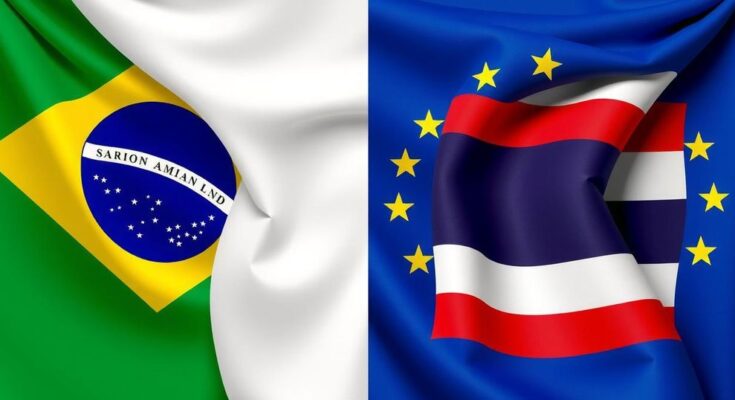Brazil has secured new agricultural export authorizations from EEU, Saudi Arabia, and Thailand, allowing exports of bananas, walnuts, yerba mate, macadamia nuts, and fishmeal. These developments reflect Brazil’s strategy to diversify its export portfolio, enhance international trade relations, and build confidence in its sanitary protocols. With 221 market openings by 2024, Brazilian agribusiness stands to benefit significantly from these initiatives.
The Brazilian government has recently announced significant developments regarding its agricultural exports. Notably, the Eurasian Economic Union (EEU), encompassing Armenia, Belarus, Kazakhstan, Kyrgyzstan, and Russia, has approved Brazilian exports of bananas and walnuts. This approval aligns with Brazil’s agricultural exports to the EEU, which have surpassed USD 1.3 billion this year. Furthermore, Brazilian agribusiness has gained new export opportunities in Saudi Arabia, where Brazil is now authorized to export yerba mate and macadamia nuts. In 2024, agricultural exports to Saudi Arabia reached a remarkable USD 2.3 billion. Additionally, Brazil has received clearance from Thailand to export fishmeal and fish oil, essential products in various industries, with imports from Brazil totaling over USD 2.7 billion from January to November 2024. These strategic exports reflect Brazil’s commitment to diversifying its export portfolio and enhancing trade relationships globally, showcasing international confidence in Brazil’s sanitation and phytosanitary regulations. By the end of 2024, Brazilian agribusiness is expected to enjoy 221 market openings, adding to the 299 new business opportunities established since the commencement of 2023. Such advancements are a testament to the collaborative efforts of the Ministry of Agriculture and Livestock (MAPA) alongside the Ministry of Foreign Affairs (MRE).
Brazil’s strategy to expand its agricultural export markets serves to strengthen its trade partnerships while enhancing economic resilience. In recent years, the government has focused on gaining access to various international markets, reflecting a desire for diversification beyond traditional export channels. The successful negotiations with the EEU, Saudi Arabia, and Thailand signal growing confidence in Brazilian agricultural products on a global stage, supported by robust sanitary measures and adherence to international standards.
In summary, Brazil’s recent agreements with the Eurasian Economic Union, Saudi Arabia, and Thailand illustrate the nation’s commitment to fortifying its agricultural export landscape. The authorization for diverse products underscores the increasing trust in Brazil’s agricultural sector and its regulatory frameworks. With a total of 221 market openings anticipated by 2024, the Brazilian agribusiness sector is poised for substantial growth, bolstered by the collaborative efforts of relevant governmental bodies.
Original Source: www.gov.br



